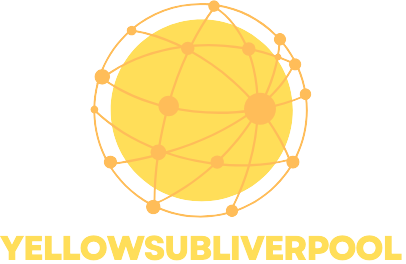Table of Contents
ToggleIn today’s digital landscape, content personalization tools are transforming how brands connect with their audiences. These innovative solutions enable businesses to tailor content based on individual preferences, behaviors, and demographics, creating a more engaging user experience. As consumers increasingly expect personalized interactions, leveraging these tools has become essential for staying competitive.
By utilizing advanced algorithms and data analytics, content personalization tools help companies deliver relevant messages that resonate with their target audience. This not only enhances customer satisfaction but also drives conversions and boosts brand loyalty. As marketers embrace this trend, understanding the various tools available and their unique features can empower them to create impactful, customized content strategies.
Overview of Content Personalization Tools
Content personalization tools utilize data analytics and algorithms to tailor content for individual users. These tools allow businesses to analyze user behaviors, preferences, and demographics for creating targeted experiences. Brands leverage this technology to deliver relevant messages, enhancing user engagement.
Common types of content personalization tools include:
- Recommendation Engines: Analyze user behavior to recommend products or content based on past interactions. For example, e-commerce platforms suggest items similar to previous purchases.
- Dynamic Content: Adjusts website content in real-time based on user data, such as location or browsing history. News sites often display different headlines for various reader segments.
- Email Marketing Automation: Customizes email content for various audience segments based on engagement history. This approach improves open and click-through rates.
- Behavioral Targeting Platforms: Track user activity across websites to deliver ads or messages that align with specific interests. Social media platforms effectively use this method to enhance ad relevance.
- Customer Relationship Management (CRM) Systems: Integrate personalization features that help businesses manage interactions with customers and tailor communications effectively.
By implementing these tools, companies improve customer satisfaction and drive conversions. Users experience more meaningful interactions, which fosters brand loyalty.
Importance of Content Personalization

Content personalization plays a crucial role in enhancing engagement and relevance in digital marketing. It aligns business strategies with consumer expectations, making tailored content essential for brand success.
Benefits for Businesses
- Increased engagement: Personalized content captures audience interest through relevance, resulting in higher engagement rates across platforms.
- Improved conversion rates: Targeted messaging boosts conversion rates by presenting customers with what they truly want, often leading to greater sales.
- Enhanced customer loyalty: Customized experiences foster emotional connections. Businesses that invest in personalization often see improved brand loyalty.
- Data-driven insights: Personalization tools provide valuable data analytics, enabling businesses to refine their strategies effectively based on customer behavior.
- Competitive advantage: Utilizing personalization techniques helps a brand stand out in a crowded marketplace, making them more appealing to potential customers.
Impact on User Experience
- Relevance: Personalized content enhances relevance, ensuring users receive tailored recommendations that match their preferences and behaviors.
- Satisfaction: Users experience greater satisfaction when interacting with brands that understand their needs. This satisfaction often translates into repeat visits and purchases.
- User retention: The presence of personalized content encourages users to return, as they perceive brands to act in their interests, leading to increased retention rates.
- Omnichannel consistency: Personalization ensures a seamless experience across different channels, aligning content with user expectations regardless of the platform.
- Trust and credibility: When businesses communicate directly with users through personalized experiences, it builds trust, establishing credibility in the market.
Types of Content Personalization Tools
Content personalization tools come in various forms, each designed to enhance user experience and engagement. Understanding these tools enables businesses to tailor their strategies effectively.
Recommendation Engines
Recommendation engines analyze user data to suggest products or content tailored to individual preferences. These engines utilize algorithms that learn from user behavior, such as past purchases or browsing history. For example, e-commerce websites often display product recommendations based on items a user previously viewed or purchased. By implementing recommendation engines, brands can increase engagement and drive sales through relevant suggestions.
Dynamic Content Tools
Dynamic content tools allow websites and emails to display customized content based on user data and behavior. These tools adjust text, images, or layout in real-time, creating a unique experience for each visitor or recipient. For instance, news websites can show different articles to users based on their location or interests. Dynamic content enhances engagement by ensuring users see the most relevant information, leading to higher conversion rates.
Segmentation and Targeting Tools
Segmentation and targeting tools categorize audiences based on characteristics such as demographics, behavior, and interests. These tools enable businesses to create targeted marketing campaigns, ensuring messages reach the right audience. For example, email marketing platforms can segment lists to send tailored content that resonates with specific groups, like promoting different offers to new versus returning customers. By leveraging these tools, brands can increase the effectiveness of their marketing efforts and improve customer retention.
Key Features to Look For
Selecting the right content personalization tool involves identifying features that enhance functionality and user experience. Key features include data integration capabilities, a user-friendly interface, and robust analytics and reporting.
Data Integration Capabilities
Effective content personalization tools integrate seamlessly with various data sources, including CRM systems, e-commerce platforms, and social media channels. Integration allows these tools to aggregate and analyze user data from multiple touchpoints. Tools with strong data integration capabilities enable organizations to create comprehensive user profiles, ensuring personalized content reflects the user’s preferences and behavior across platforms. For example, a tool that connects with a CRM can facilitate dynamic content tailored to a customer’s previous interactions.
User-friendly Interface
A user-friendly interface simplifies the process of setting up and managing personalized content strategies. Tools should feature intuitive dashboards, drag-and-drop functionality, and easy navigation, making it accessible for users of all technical skill levels. When tools are designed with user experience in mind, marketing teams can implement personalization strategies more efficiently. A straightforward interface reduces training time, enhancing productivity and allowing faster adaptation to changing consumer needs.
Analytics and Reporting
Robust analytics and reporting features are crucial for measuring the success of content personalization efforts. Tools that provide in-depth insights into user engagement, conversion rates, and overall campaign performance help marketers understand what resonates with their audience. Effective analytics should include real-time data tracking, customizable reports, and visual representations of key metrics. With these features, marketers can adapt strategies quickly based on performance data, driving continuous improvement in personalization efforts.
Leading Content Personalization Tools on the Market
Several content personalization tools stand out in the market, each offering unique features that help businesses enhance customer engagement and drive conversions.
Tool A
Optimizely enables businesses to deliver personalized content effectively through experimentation. With robust A/B testing features and multivariate testing capabilities, users can analyze which content resonates best with their audience. Its real-time personalization engine adjusts website content based on user behavior and attributes, allowing for targeted experiences that lead to higher engagement rates.
Tool B
Dynamic Yield provides an all-in-one platform for personalization. It offers tools for recommendation engines, email personalization, and dynamic web content. By leveraging behavioral data, Dynamic Yield helps brands create tailored experiences across channels. Its visual interface simplifies the creation of complex user journeys, ensuring marketers can deploy targeted campaigns without extensive technical knowledge.
Tool C
Segment focuses on data management to enhance personalization efforts. It centralizes customer data from various sources, allowing businesses to create comprehensive user profiles. By utilizing advanced segmentation features, brands can deliver targeted content and promotions. Segment’s integration capabilities with a wide range of marketing tools ensure seamless data flow, driving more relevant customer interactions.
Embracing content personalization tools is essential for brands aiming to connect meaningfully with their audiences. By leveraging these technologies, businesses can craft tailored experiences that resonate with individual preferences and behaviors. This not only enhances customer satisfaction but also drives engagement and loyalty.
As the digital landscape continues to evolve, the ability to deliver relevant content will set brands apart from the competition. Investing in the right personalization tools can yield valuable insights and improve overall marketing effectiveness. Ultimately, adopting a personalized approach is not just a trend but a necessary strategy for success in today’s market.







